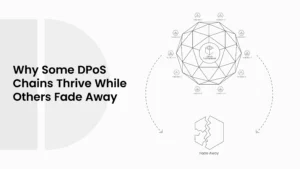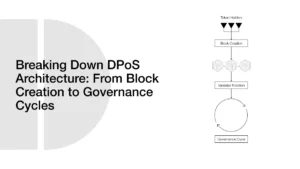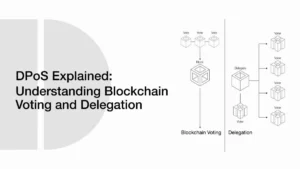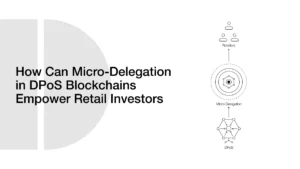What are Block Producers in DPoS? An Ultimate Guide to their Roles and Incentives
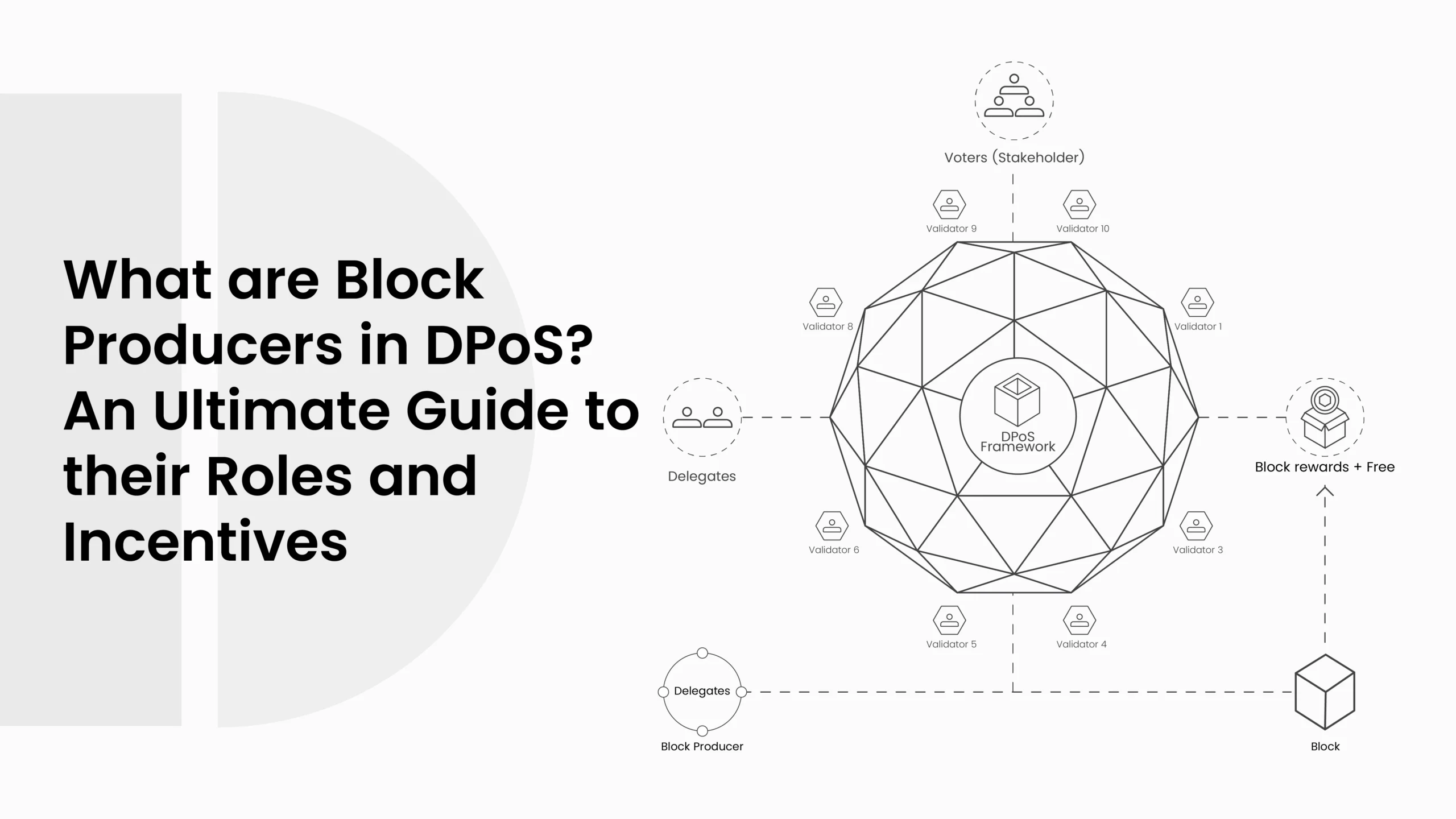
When someone begins to explore blockchain technology and repeatedly comes across the term block producers, it can appear confusing at first. In Delegated Proof of Stake (DPoS) systems, block producers are not just a minor component of the network; they represent the very core of its operation.
- What Is a Block Producer in DPoS?
- How Are Block Producers Chosen?
- What Do Block Producers Actually Do?
- Why Would Anyone Want to Be a Block Producer?
- What Makes a Good Block Producer?
- What Happens If a Block Producer Doesn’t Work Properly?
- How Do Block Producers Keep the Network Secure?
- Monitoring and Defense
- Handling Attacks
- Challenges Block Producers Face Day to Day
- Cost of Running Infrastructure
- Staying in Voters’ Favor
- Balancing Rewards and Community
- Block Producers vs. Miners: What’s the Difference?
- Real-Life Example: Solar Blockchain
- Conclusion
- Frequently Asked Questions About Block Producers in DPoS
- What is a block producer in DPoS?
- How are block producers chosen?
- What rewards do block producers get?
- Can a block producer lose their spot?
- How are block producers different from miners?
- Glossary of Key Terms
Block producers in DPoS are elected by token holders, which makes this system more democratic compared to Proof of Work or even normal Proof of Stake. Instead of wasting huge amounts of electricity on mining like in Bitcoin, block producers are chosen through voting. This means the community directly decides who will maintain the chain, but at the same time, it also creates risk if only a few producers hold too much voting power.
This article will explain everything in a clear way. It will look at what block producers actually do day to day, how the election process happens, and why people want to become block producers in the first place. By the end, it will be clear how incentives work and why the role is both challenging and rewarding for those who take it.
ALSO READ: How to Choose the Right Delegate or Validator in a DPoS System
What Is a Block Producer in DPoS?
In a Delegated Proof of Stake (DPoS) blockchain, a block producer is the entity, whether an individual, a team, or an organization, responsible for creating new blocks, verifying transactions, and ensuring that the network operates smoothly.
It’s possible to think that a block producer is the official recorder of the blockchain. Much like a referee in a sports game, their role is to check that all transactions follow the rules, prevent any unfair activity, and record each valid transaction on the blockchain ledger.
In the DPoS consensus algorithm, voting chooses the block producers. The token holders cast their votes on well-trusted candidates, and only the highest-ranked participants get the right to generate blocks. It is this form of delegate voting that makes DPoS a more democratic and community-owned model as opposed to the traditional models, such as Proof of Work.
How Are Block Producers Chosen?
In a DPoS consensus mechanism, users don’t compete to solve puzzles like in Bitcoin. Instead, they vote. That’s why it’s called “Delegated” Proof of Stake.
So, how does it work? Every user who holds tokens gets to vote. Then, they vote for a limited number of trusted participants, called delegates or block producers. The ones with the most votes earn the right to produce blocks and secure the network.
For example, the Solar blockchain allows token holders to vote for 53 active block producers and several backup ones. These producers rotate to keep things fair and decentralized. Block producers are elected representatives of the blockchain community. They earn your trust and your vote by being active, honest, and reliable.
What Do Block Producers Actually Do?
Once elected, block producers take on serious responsibility. Here’s what they do:
- Create new blocks: They bundle transactions into blocks and add them to the blockchain.
- Verify transactions: They make sure no double-spending, fake transactions, or invalid actions are allowed.
- Maintain network performance: They keep the system stable, fast, and secure.
- Propose or vote on upgrades: In some chains, producers also help shape the network’s future.
And they make all this in a flash of lightning. DPoS chains have a reputation for speedy finality, i.e., the blocks are confirmed within seconds, not within minutes. However, the position is accompanied by stress. In case a block producer does not deliver, misses blocks, goes offline, or misbehaves, the community can vote them out.
ALSO READ: Staking in DPoS Networks: Know All About Risks, Rewards, and ROI
Why Would Anyone Want to Be a Block Producer?
Let’s be honest. It’s a demanding job. So, why do people want to do it? Answer: Incentives. Block producers are rewarded for their efforts in two main ways:
- Block rewards – Every time a block is successfully created, the producer earns a set number of tokens.
- Transaction fees – They also earn fees paid by users to send transactions.
These rewards make it profitable to be a reliable block producer. On some chains, the earnings can be substantial. In return, many producers share their earnings with the voters who supported them. This gives voters a reason to carefully choose their producer, not just for performance, but for fair reward-sharing.
It’s a win-win:
- Producers get tokens for doing the work.
- Voters earn a slice of the reward for backing them.
What Makes a Good Block Producer?
Not all block producers perform equally well. What sets a great block producer apart is reliability, speed, and openness. Top producers maintain high uptime, meaning they’re almost always online and available to validate transactions and create blocks without delay. They contribute to fast and consistent block production, rarely missing blocks or causing slowdowns in the network. Transparency is also key; trusted producers regularly share how they operate, provide performance updates, and are open about their infrastructure and team.
In addition to technical performance, strong community engagement sets the best block producers apart. They often return a fair share of their rewards to voters, reinforcing trust and participation in the delegate voting system. Others go further and do more than their technical responsibilities, which include educating users, responding to questions at open forums, and developing useful ecosystem tools. Such contributions prove that the producer is interested not only in getting rewards but in the long-term prosperity of the blockchain.
What Happens If a Block Producer Doesn’t Work Properly?
Good question. Blockchains are built on trustless systems, so no one gets a free pass. If a block producer:
- Goes offline frequently
- Misses blocks
- Tries to attack the network
- Fails to distribute rewards
The community can vote them out.
Remember: DPoS is dynamic. Elections happen continuously. If a producer is underperforming, voters can withdraw support and choose someone else. This makes the system self-regulating. It’s not about power, it’s about performance.
How Do Block Producers Keep the Network Secure?
Security is one of the biggest responsibilities for block producers. If they fail at this job, the whole chain can suffer. Unlike PoW, where security is mostly about energy cost, in DPoS, security depends more on honesty and the technical setup of the producers.
Monitoring and Defense
Producers run special monitoring tools to keep an eye on transactions. They also need firewalls, backups, and sometimes even hidden nodes so they don’t get attacked directly.
Handling Attacks
If a producer is targeted with a DDoS or tries to run fake transactions, other producers and the community can notice quickly. In many DPoS systems, votes can be shifted fast to remove a weak or bad actor.
ALSO READ: DPoS in Action: How EOS, TRON, and BitShares Implement It Differently
| Task | Why It Matters | What Happens if Failed |
| Verify transactions | Stops double spend | Invalid blocks enter chain |
| Run secure servers | Keeps uptime high | Missed blocks, slashing risk |
| Monitor for attacks | Protects from DDoS or hacks | Network slowdown or outages |
Challenges Block Producers Face Day to Day
Being a block producer is not only about rewards and prestige. It comes with pressure and costs that are not always obvious from the outside.
Cost of Running Infrastructure
Good servers, backup systems, and bandwidth are expensive. In networks like Solana, some producers spend thousands each month just to stay online.
Staying in Voters’ Favor
Block producers are elected positions. That means they need to maintain their reputation all the time. If they don’t talk with the community or miss blocks, votes can quickly move away.
Balancing Rewards and Community
Some producers share a big percentage of rewards to attract voters, but this can make it hard to pay for their infrastructure. Others keep higher commissions, but then voters may not stay with them.
| Challenge | Why It’s Hard | Impact on Network |
| High costs | Need strong hardware & staff | Limits smaller teams joining |
| Community trust | Must stay active & open | Weak communication hurts votes |
| Reward balance | Need to share fair % | Too low or too high both risky |
Block Producers vs. Miners: What’s the Difference?
Let’s compare:
| Feature | Block Producers (DPoS) | Miners (Proof of Work) |
| Elected by voters? | Yes | No |
| Need massive energy? | No | Yes |
| Speed | Fast | Slower |
| Block production | By schedule | By mining competition |
| Community-driven? | Strong voter influence | Limited influence |
Block producers offer more efficiency and eco-friendliness. That’s why DPoS is considered one of the most efficient consensus models in the blockchain world.
Real-Life Example: Solar Blockchain
The Solar blockchain is a great case study.
On Solar:
- There are 53 active block producers.
- Each producer runs a powerful node.
- Token holders vote using their SXP tokens.
- The system is fast, decentralized, and scalable.
Solar producers are also encouraged to give back to the community through reward-sharing or development projects. Transparency and reputation matter here. It’s not just a job, it’s a role of trust and responsibility.
ALSO READ: Which Cryptocurrencies Use DPoS in 2025? A Beginner’s Guide to DPoS Blockchains
Conclusion
Is being a block producer in DPoS really important? Yes, it is. They are the ones trusted to keep the blockchain secure, make sure transactions are running fast, and that the system doesn’t break down. Without reliable producers, the whole chain would slow down or even lose trust.
To any person getting acquainted with crypto, it is essential to learn what block producers are, which is the initial step to grasp how DPoS functions. They not only happen to be technical operators, but they are elected leaders of the network. The level of their performance, integrity, and role in the community defines the extent to which the system is strong and just.
Any investor willing to part with tokens must thoroughly study the producers as well as how they work and what type of tokens are being issued. The reality of the DPoS network is that the strength depends on the community and not on an individual.
The voting by token holders influences who produces the chain, and the choices of producers directly impact the health of the blockchain as a whole, and also the rewards that are reintroduced into the ecosystem. By doing so, Delegated Proof of Stake can be more than merely a technical system; it can become a community-oriented framework in which there are significant financial and governance implications of the collective decision.
Frequently Asked Questions About Block Producers in DPoS
What is a block producer in DPoS?
A block producer is the elected person or team who makes new blocks, checks transactions, and keeps the blockchain running smoothly.
How are block producers chosen?
They are picked by token holders through voting. The ones with the most votes get the right to create blocks.
What rewards do block producers get?
They earn block rewards and transaction fees. Many also share part of these rewards with voters who supported them.
Can a block producer lose their spot?
Yes. If they go offline, miss blocks, or misbehave, the community can stop voting for them. DPoS is designed so that producers can be replaced quickly.
How are block producers different from miners?
Miners use energy to solve puzzles, while block producers are elected by votes. Producers are faster, more energy-efficient, and more community-driven.
Glossary of Key Terms
- DPoS (Delegated Proof of Stake): A consensus system where token holders vote for delegates (block producers) to run the network.
- Block Producer / Delegate / Validator: The elected participant who makes blocks and verifies transactions in DPoS.
- Uptime: The amount of time a producer stays online and active without failing.
- Slashing: A penalty when a validator or producer misbehaves or goes offline.
- Block Reward: Tokens given to a producer each time they create a block.
- Transaction Fee: Small fees paid by users for each transaction, often collected by producers.
- Governance Vote: Decisions producers take part in, such as upgrades or funding proposals.
- Voter Incentives: The share of rewards given back to token holders who voted for a producer.

